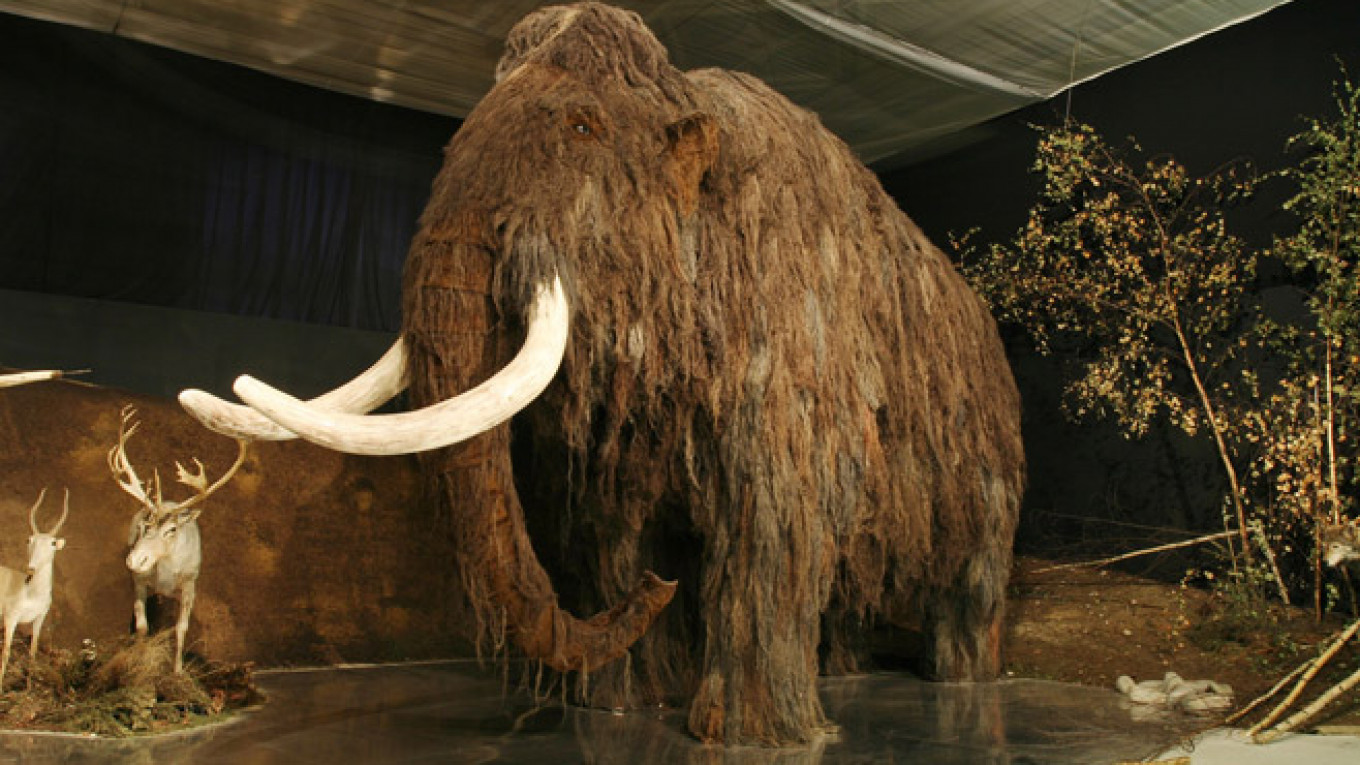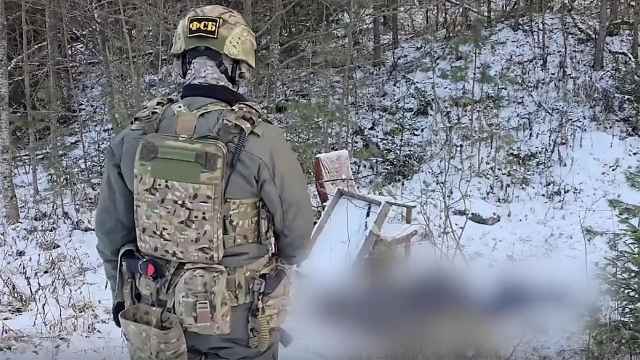As part of an initiative to clone woolly mammoths, Russian and South Korean scientists will launch a research center next month in the Sakha republic, Interfax reported Wednesday.
Woolly mammoths are believed to have gone extinct some 4,500 years ago. For decades, the Sakha republic has been known as a hotspot for archeological and paleontological finds, including 80 percent of Russia's mammoth remains.
The region is home to the Berelekhskoye Mammoth Cemetery, where 8,500 bones belonging to 140 mammoths were discovered in 1970. More than 98 percent of the bone fragments recovered in the area were from mammoths, according to the Russian magazine Science & Life (Nauka i Zhizn).
During a 200-kilometer expedition across the Sakha republic's barren landscape that ended last week, some 700 kilograms of paleontological material was retrieved and sent to the city of Yakutsk, according to Interfax.
The expedition — in which Russian, American and Moldovan scholars participated — also led to the discovery archeological sites by the Kolyma River where prehistoric humans lived during the Upper Paleolithic era, some 10,000 to 50,000 years ago.
The launch of the research center is part of a joint effort between Yakutsk's Northeastern Federal University and South Korea's Sooam Biotech Research Foundation.
"To send material to our [Korean] colleagues is not so simple," Semyon Grigoryev, head of the mammoth laboratory at Yakutsk's Northeastern Federal University, said in comments carried by Interfax.
"We have to obtain a license for this and the process can take nearly six months. Here at the center, scientists can conduct preliminary research on the spot rather than wait for a permit to export their material. This will make work significantly easier for everybody."
Earlier this month, the skull of an extinct Ice Age cave lion was recovered from the banks of the Buotama River by employees of the Sakha republic's nature preservation ministry.
See also:
Mystery Behind Giant Hole in Siberia Clearer as 2nd Discovered
Contact the author at [email protected]
A Message from The Moscow Times:
Dear readers,
We are facing unprecedented challenges. Russia's Prosecutor General's Office has designated The Moscow Times as an "undesirable" organization, criminalizing our work and putting our staff at risk of prosecution. This follows our earlier unjust labeling as a "foreign agent."
These actions are direct attempts to silence independent journalism in Russia. The authorities claim our work "discredits the decisions of the Russian leadership." We see things differently: we strive to provide accurate, unbiased reporting on Russia.
We, the journalists of The Moscow Times, refuse to be silenced. But to continue our work, we need your help.
Your support, no matter how small, makes a world of difference. If you can, please support us monthly starting from just $2. It's quick to set up, and every contribution makes a significant impact.
By supporting The Moscow Times, you're defending open, independent journalism in the face of repression. Thank you for standing with us.
Remind me later.






